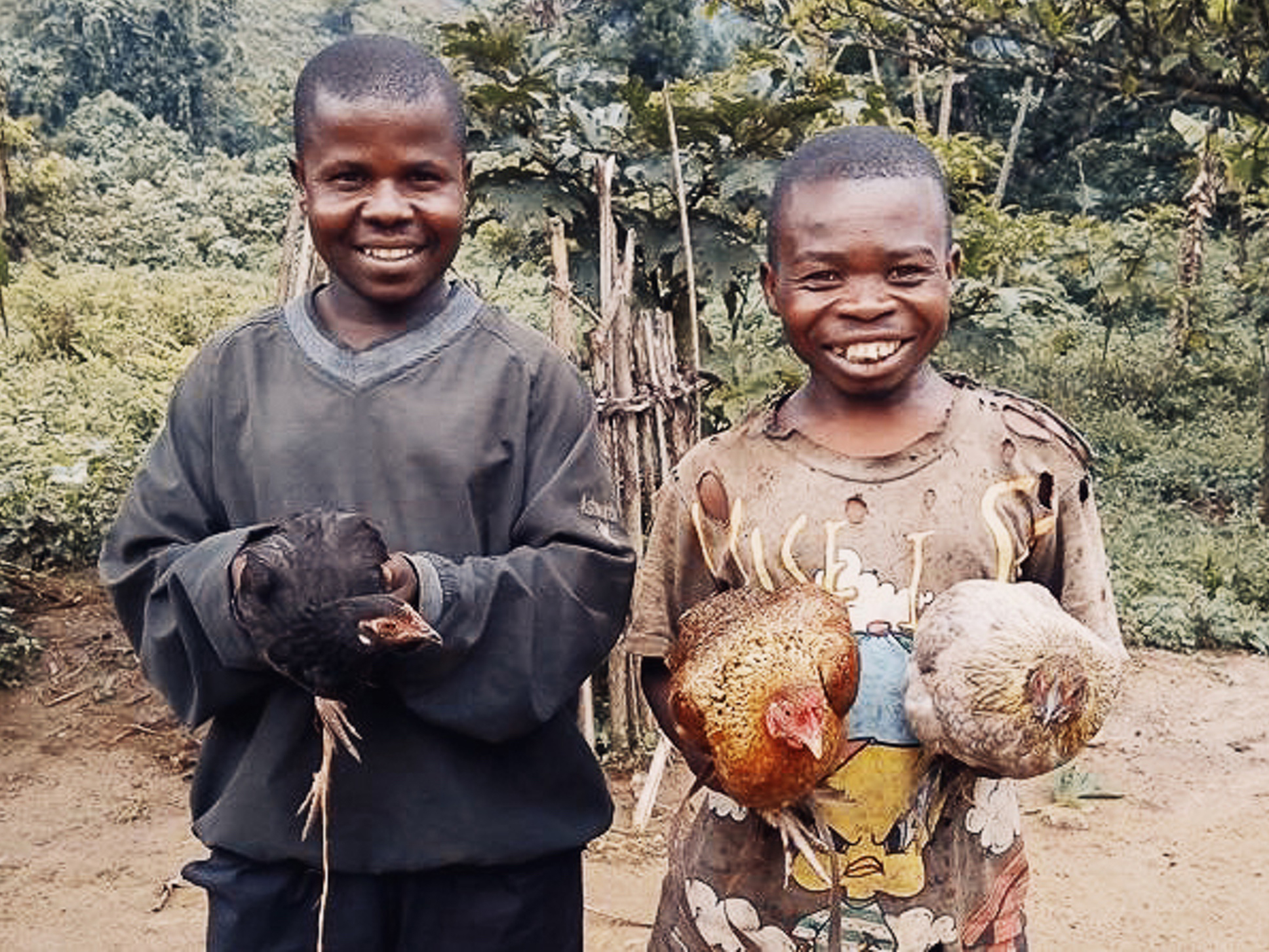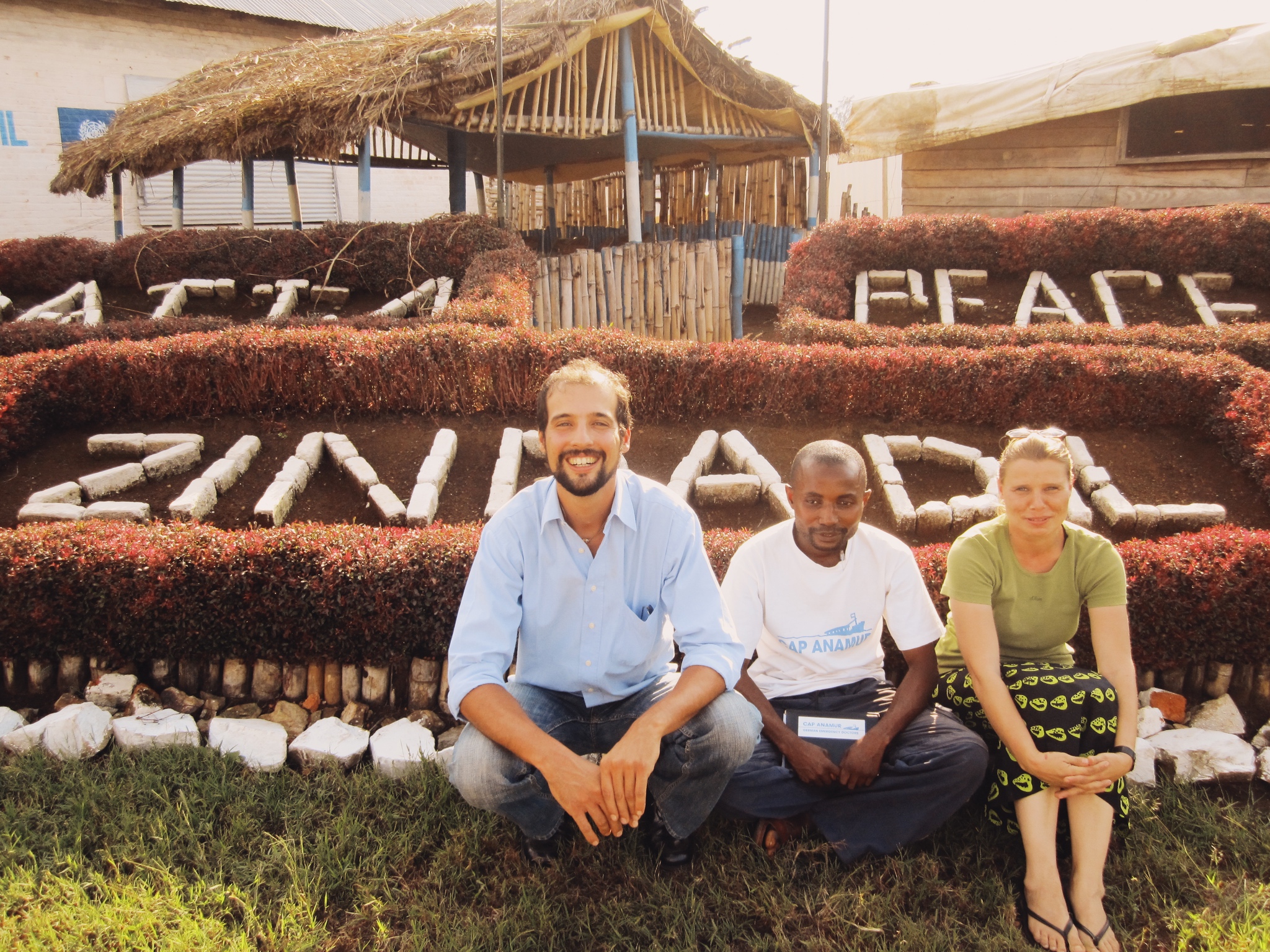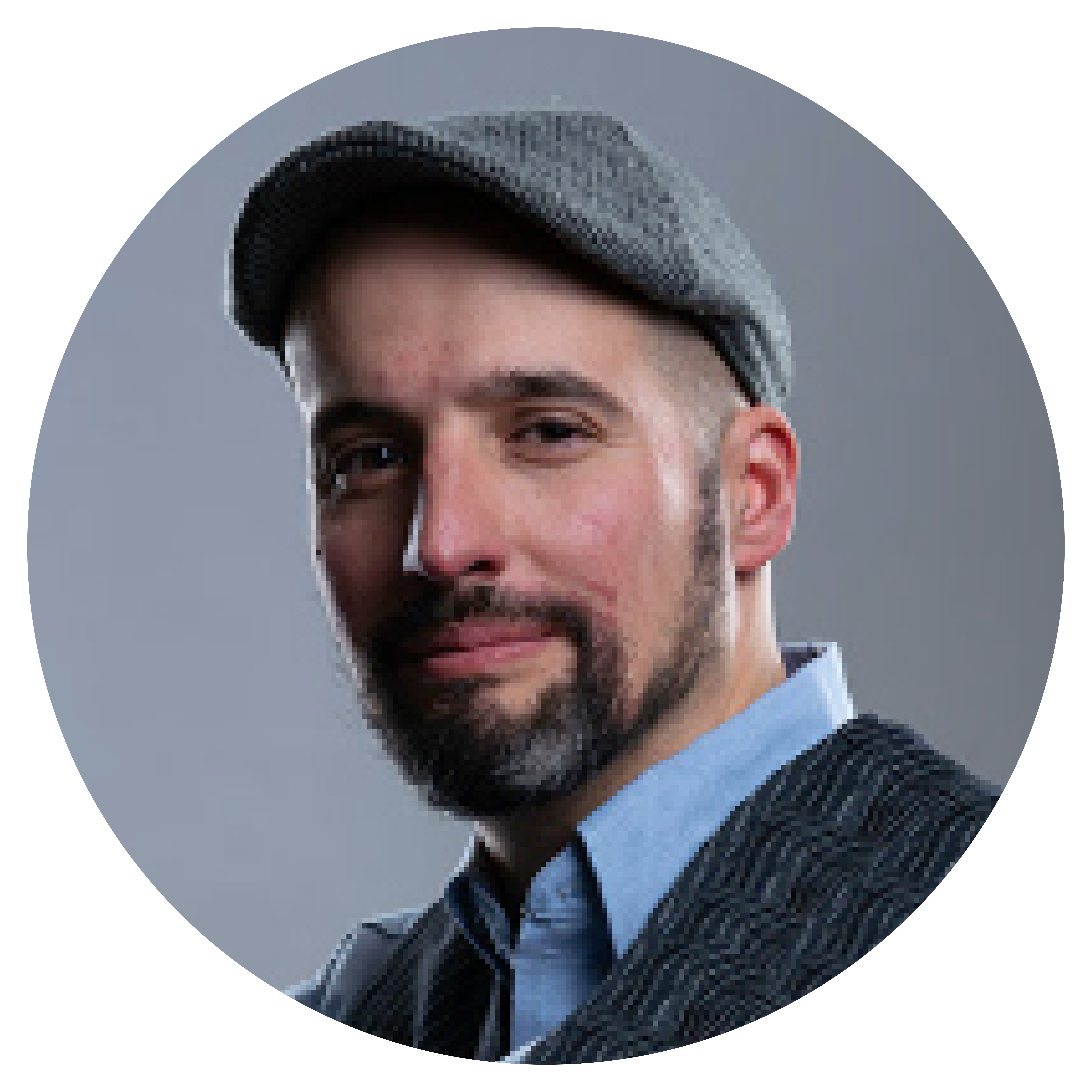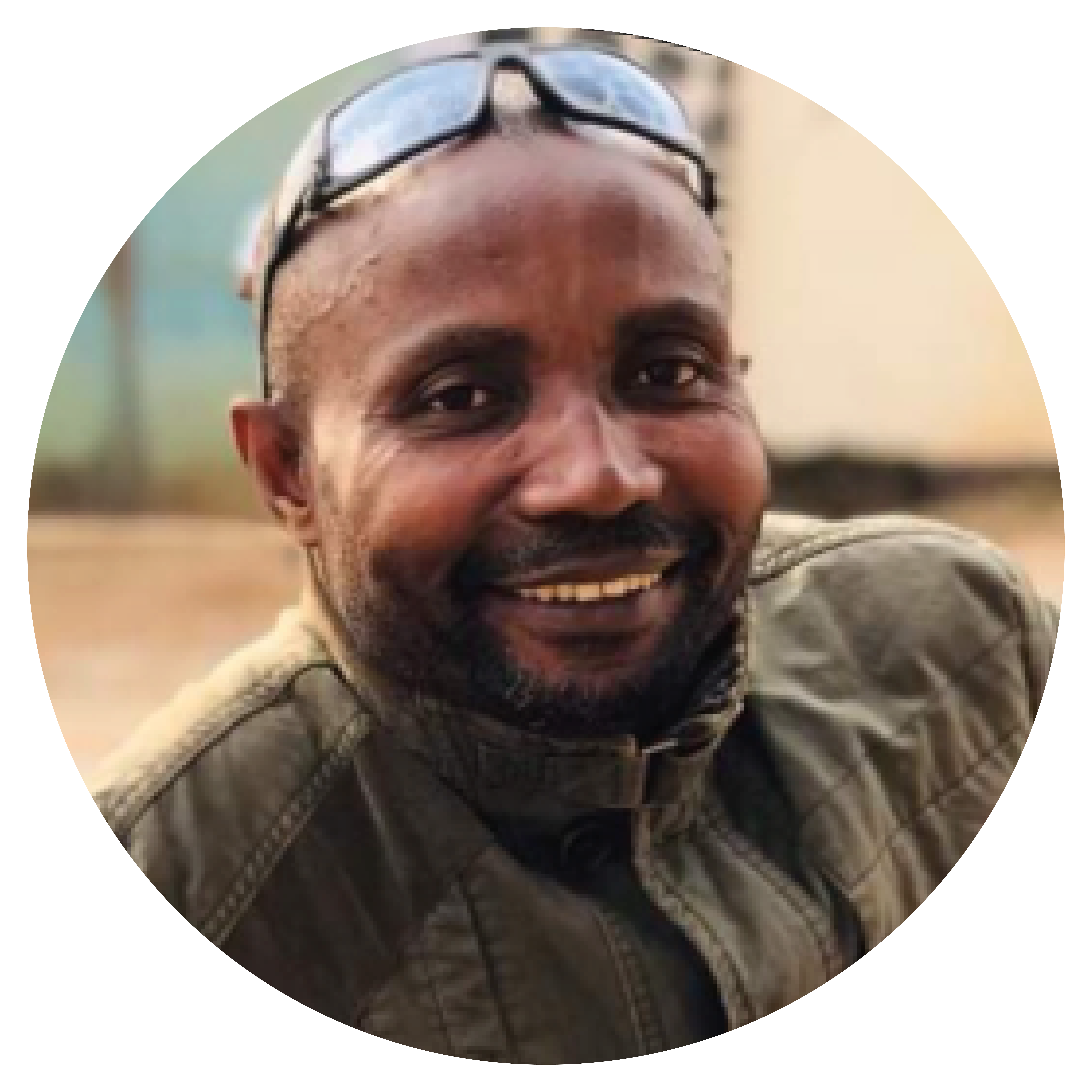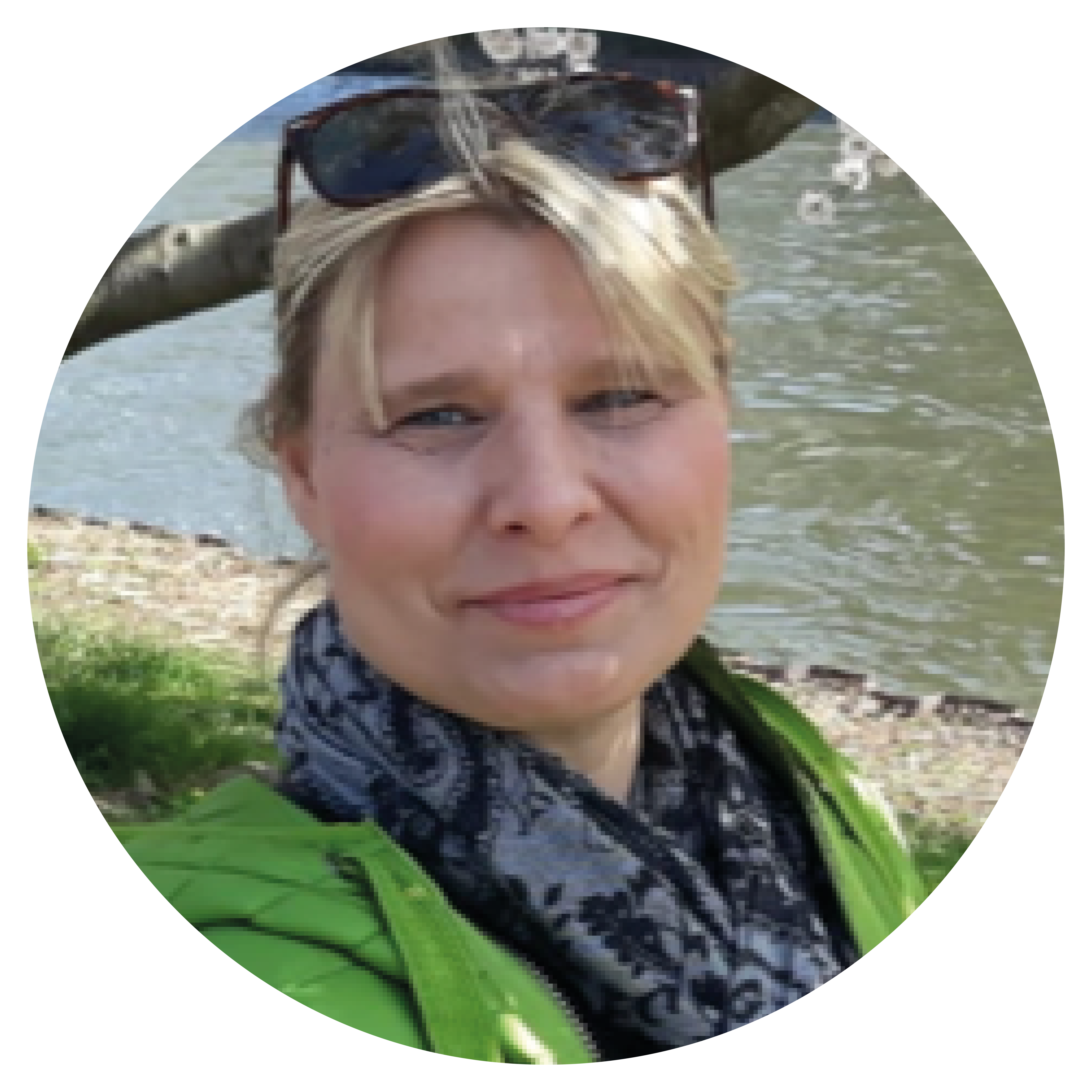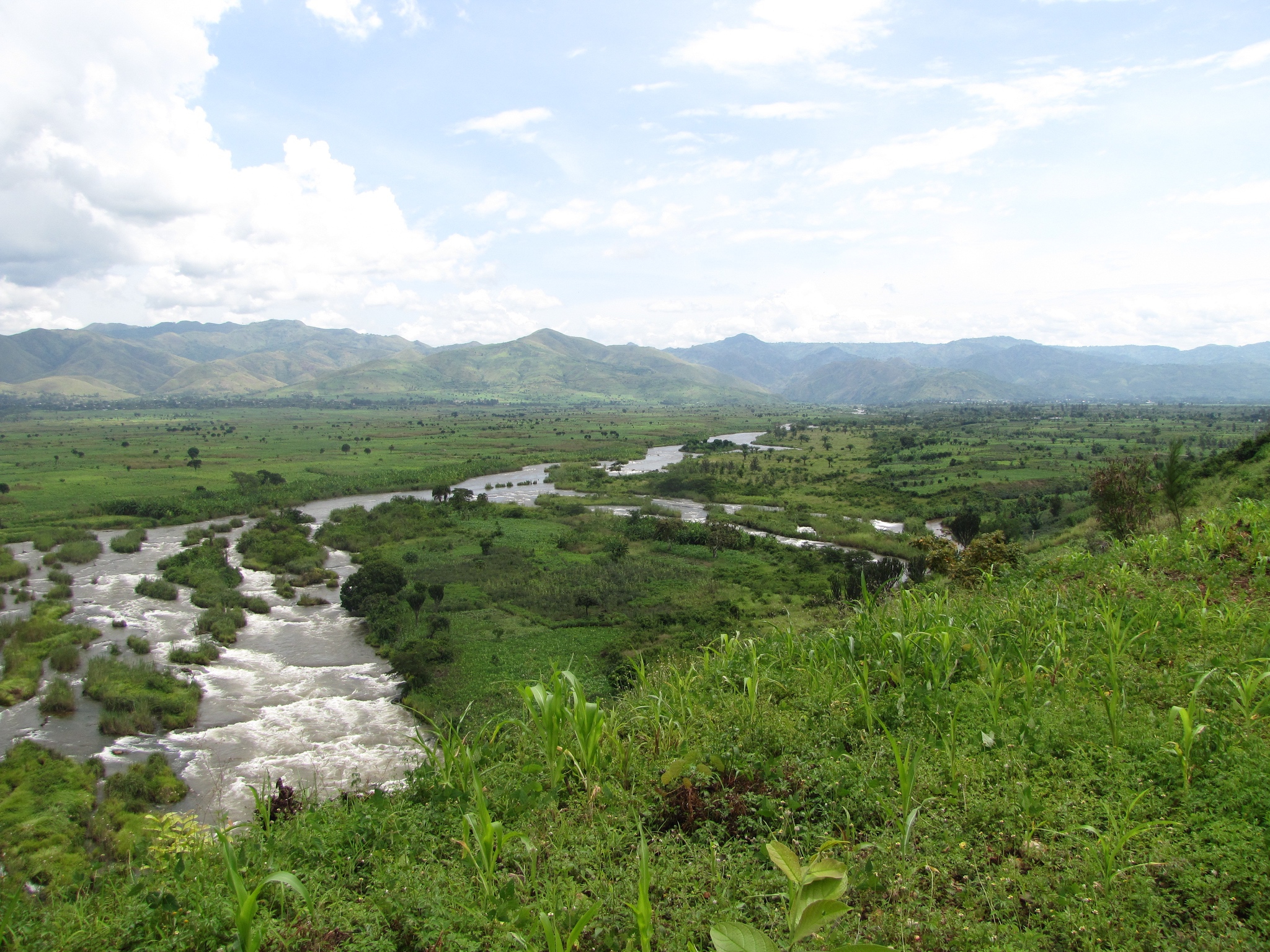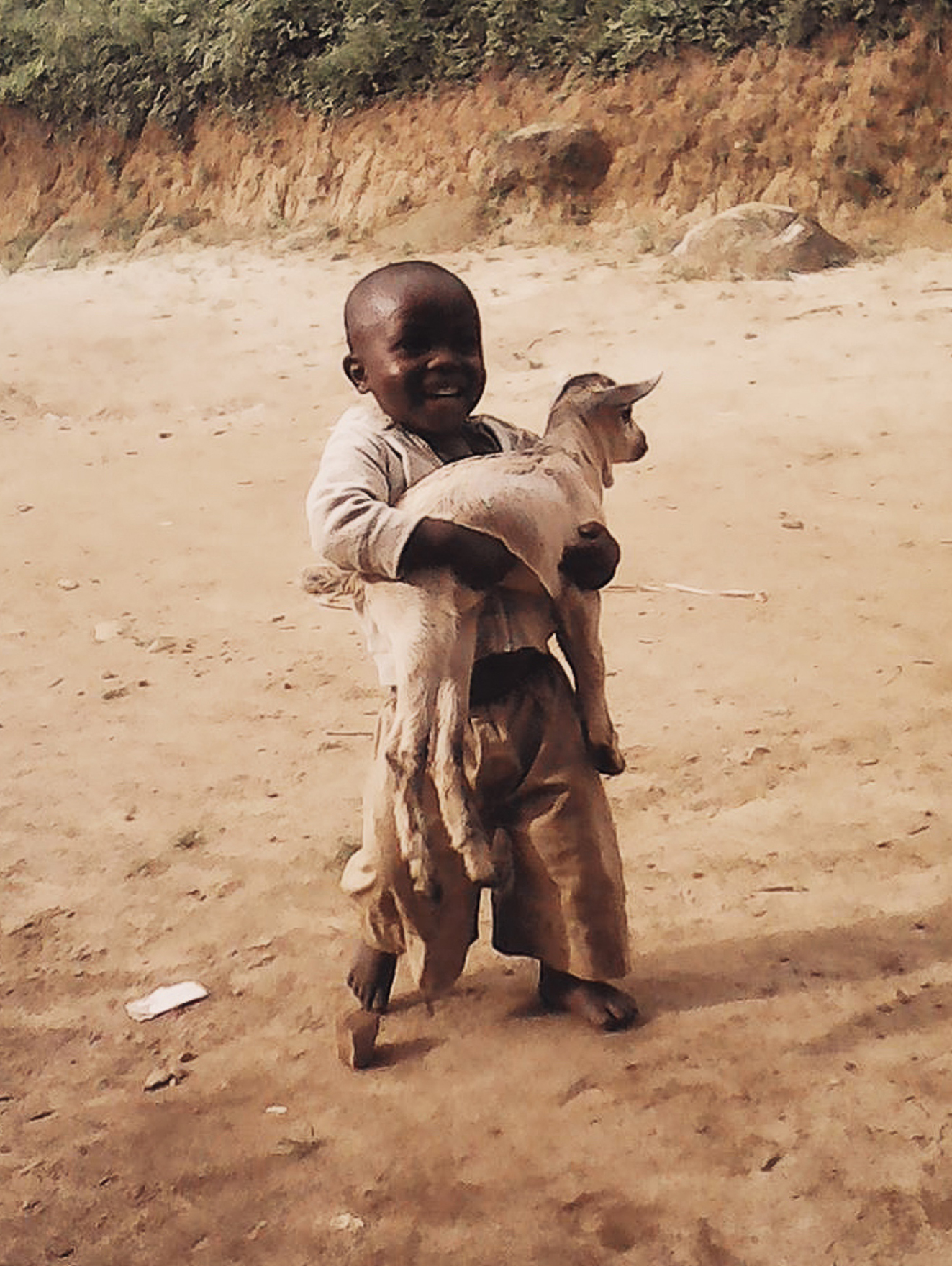Kamituga threatened by cholera and Mpox
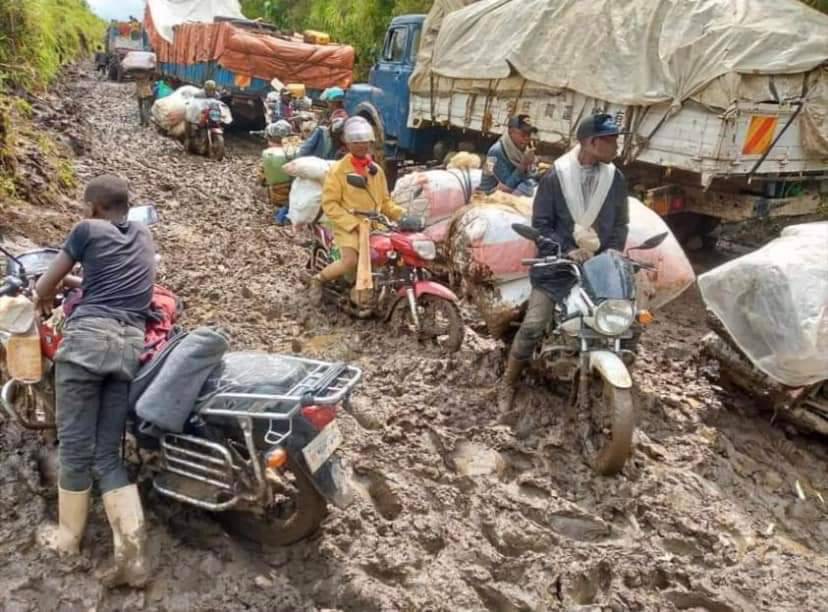
The lack of infrastructure is the key cause of many problems
The city of Kamituga, with 260,000 inhabitants, together with the neighbouring territories of Mwenga and Shabunda, has a population of 1.5 million and, like most cities in the world, is dependent on trade and exchange with other cities. Road connections are the main supply lines, as they are everywhere. However, ‘National Road 2’, which connects Kamituga with the provincial capital Bukavu, is in a desolate state (see the other articles on this topic). As a result, humanitarian aid has difficulty reaching the town. Since the departure of the German aid organisation ‘Cap Anamur’ over ten years ago, the public hospital in Kamituga has been dependent on state support and privately run health centres run by local doctors are left to fend for themselves. As a result, diseases such as cholera and mpox, which have broken out in the region, continue to spread and claim more and more lives.
The cholera and mpox patients admitted to the hospitals often cannot be adequately treated as there is no access to medication due to the poor road conditions. The hospitals in Kamituga are therefore trying to fight these epidemics as best they can with the resources available. As is so often the case, it is the poor and the weak who suffer, having to shoulder the exorbitant bills for the treatment they receive due to the shortage. Very few are in a position to do so.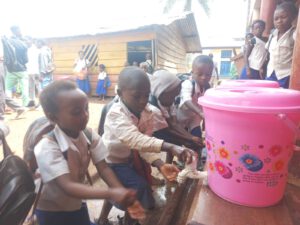
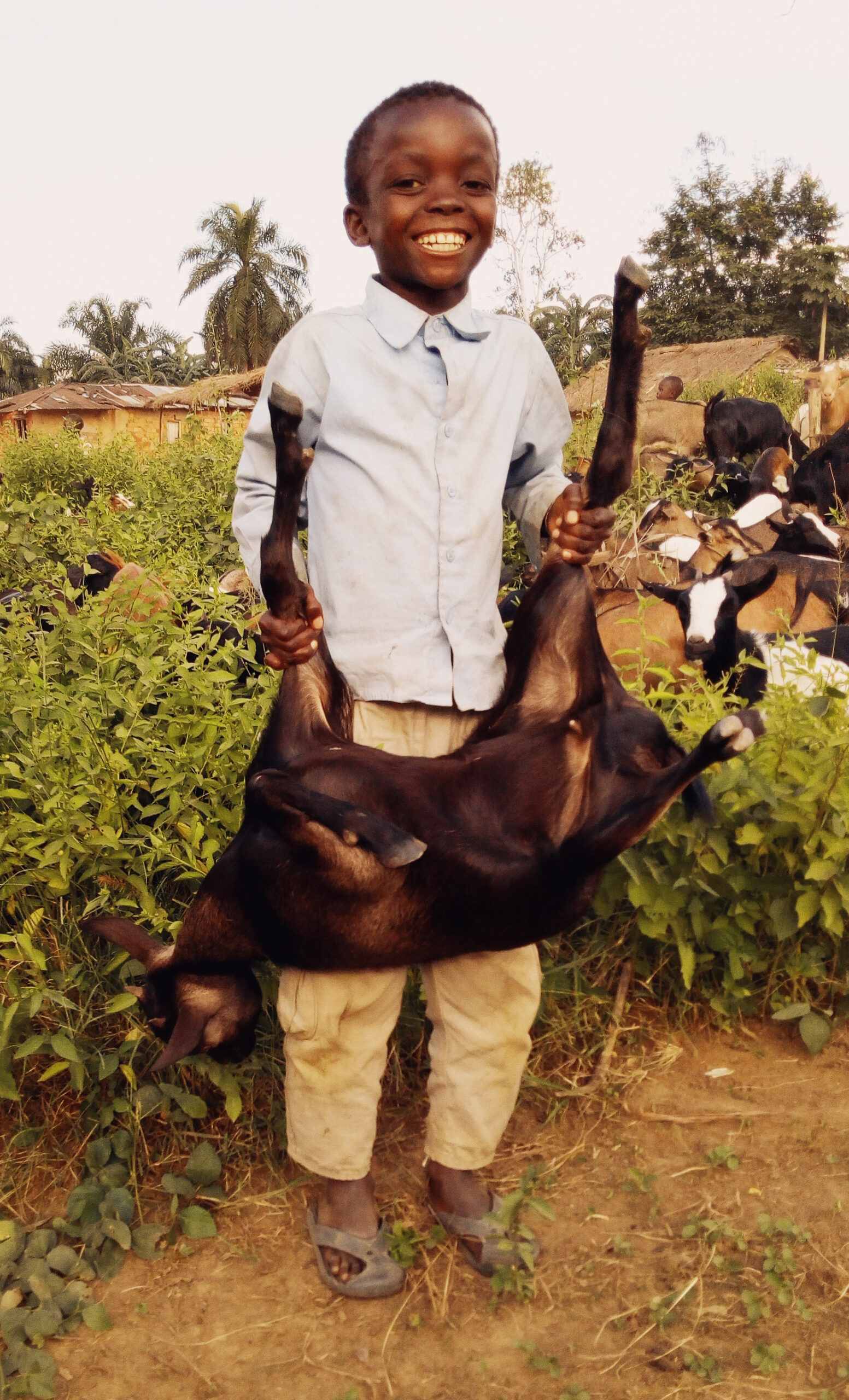
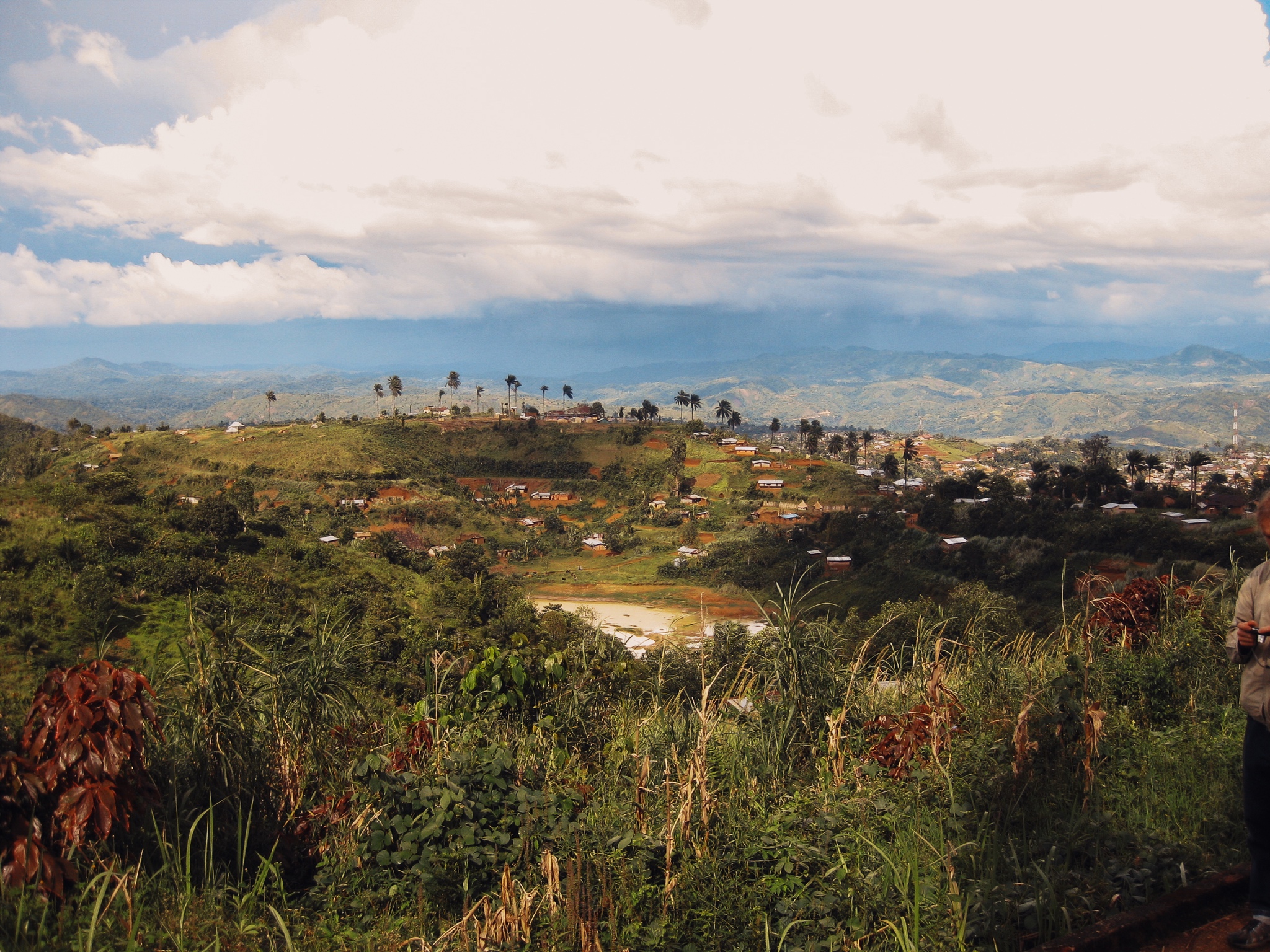
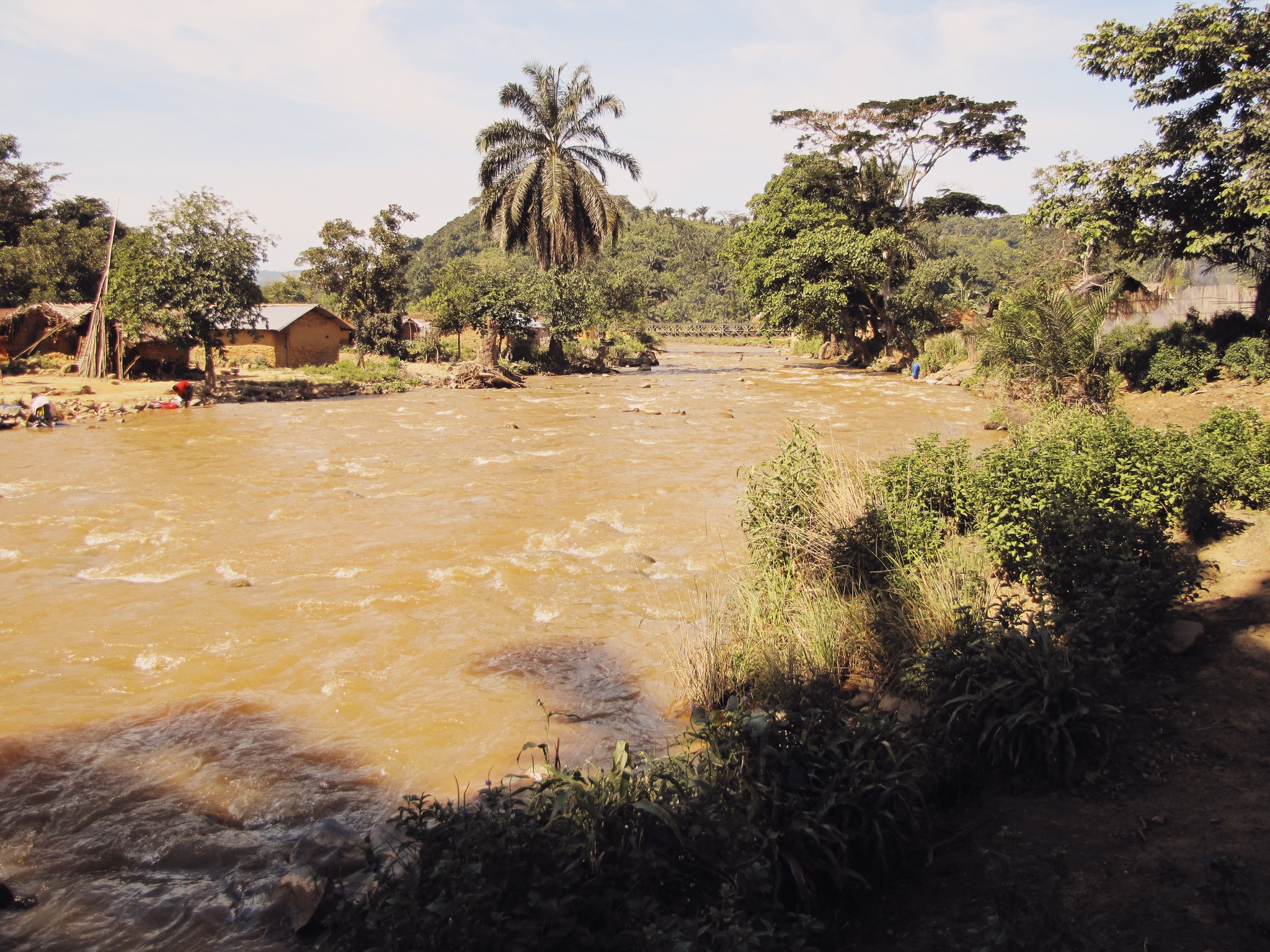

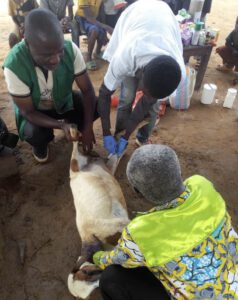 Esther’s project with the women from Nyamibungu was also on the list of projects we visited. Esther was very pleased with the visit and the progress made in healing. She reports that almost all the goats in her project are healthy again. We have instructed the vet once again to treat those animals that still show symptoms so that all the goats are healthy again and, above all, so that the disease cannot spread again.
Esther’s project with the women from Nyamibungu was also on the list of projects we visited. Esther was very pleased with the visit and the progress made in healing. She reports that almost all the goats in her project are healthy again. We have instructed the vet once again to treat those animals that still show symptoms so that all the goats are healthy again and, above all, so that the disease cannot spread again.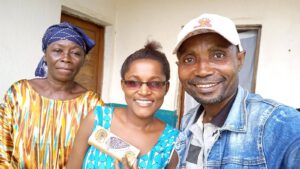
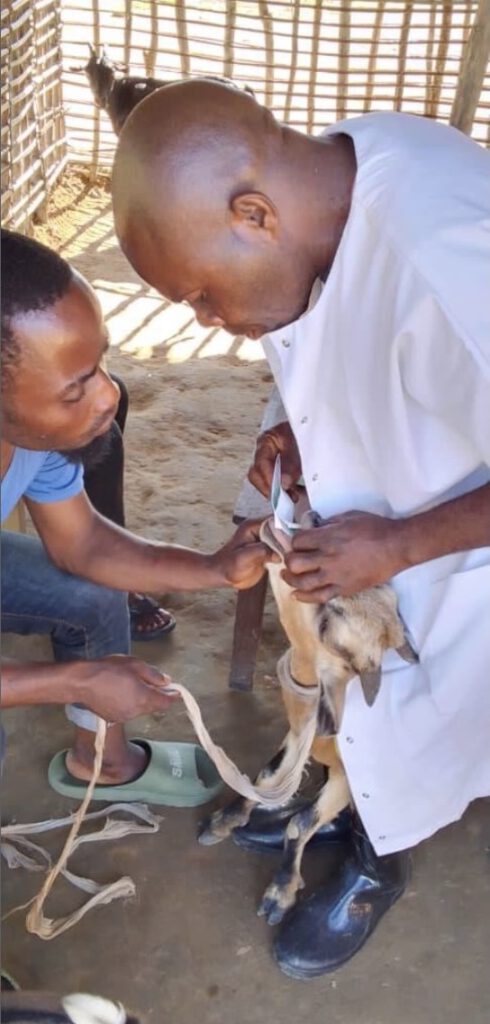
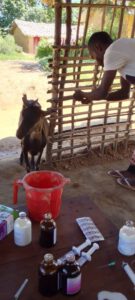 From the diagnosis of the diseases of the goats in the sometimes remote villages, to the preparation of the prescription for the medication, to the ordering of the same in a veterinary pharmacy in Bukavu 180km away (see the corresponding report), the collection there, the onward transport by lorry to our depot in Kamituga, the coordination of the treatment appointments in the individual projects, the renewed transport of the medicine by motorbike to our colleague René in Kitutu, 45km away, and from there to the individual project villages, a total of over four weeks have passed. All this is tedious – but rewarding!
From the diagnosis of the diseases of the goats in the sometimes remote villages, to the preparation of the prescription for the medication, to the ordering of the same in a veterinary pharmacy in Bukavu 180km away (see the corresponding report), the collection there, the onward transport by lorry to our depot in Kamituga, the coordination of the treatment appointments in the individual projects, the renewed transport of the medicine by motorbike to our colleague René in Kitutu, 45km away, and from there to the individual project villages, a total of over four weeks have passed. All this is tedious – but rewarding!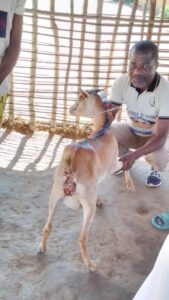
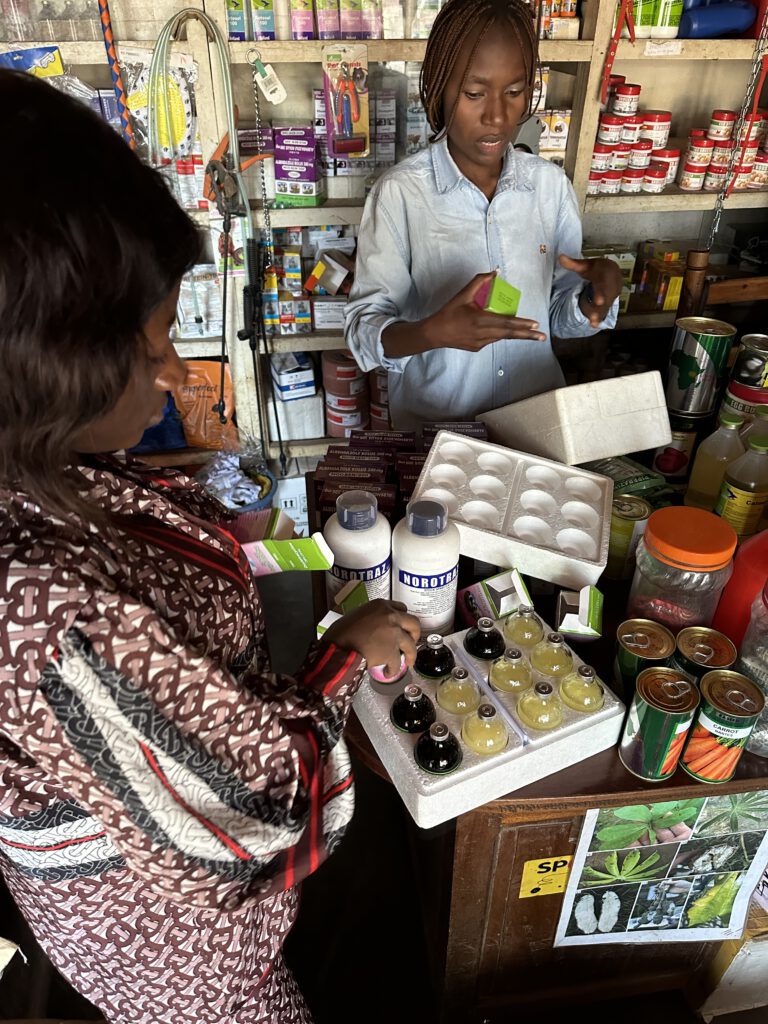
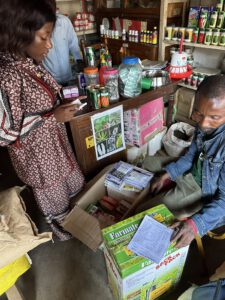 It added up to quite a lot: The purchase at the veterinary pharmacy cost almost $1000. Injection solutions, syringes, antibiotics – a bit of everything, according to the prescription the vet had written for René. We packed everything into a large cardboard box and then took it to a dispatch depot, from where the goods were transported to our warehouse in Kamituga on the next lorry (truck). From there, the medicines are then distributed to the individual projects and the vet appointments are coordinated.
It added up to quite a lot: The purchase at the veterinary pharmacy cost almost $1000. Injection solutions, syringes, antibiotics – a bit of everything, according to the prescription the vet had written for René. We packed everything into a large cardboard box and then took it to a dispatch depot, from where the goods were transported to our warehouse in Kamituga on the next lorry (truck). From there, the medicines are then distributed to the individual projects and the vet appointments are coordinated. 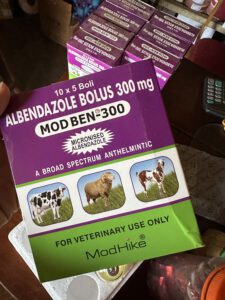 Hansen will then take the medicines by motorbike to our colleague René in Kitutu in the hinterland and he will accompany the vet to the individual villages and projects. It’s all time-consuming and tedious – but we’re glad that it’s possible at all, because when the conflicts here were even more drastic, many roads were impassable due to the risk of kidnapping. The region is more peaceful today – even though it still hasn’t completely calmed down.
Hansen will then take the medicines by motorbike to our colleague René in Kitutu in the hinterland and he will accompany the vet to the individual villages and projects. It’s all time-consuming and tedious – but we’re glad that it’s possible at all, because when the conflicts here were even more drastic, many roads were impassable due to the risk of kidnapping. The region is more peaceful today – even though it still hasn’t completely calmed down.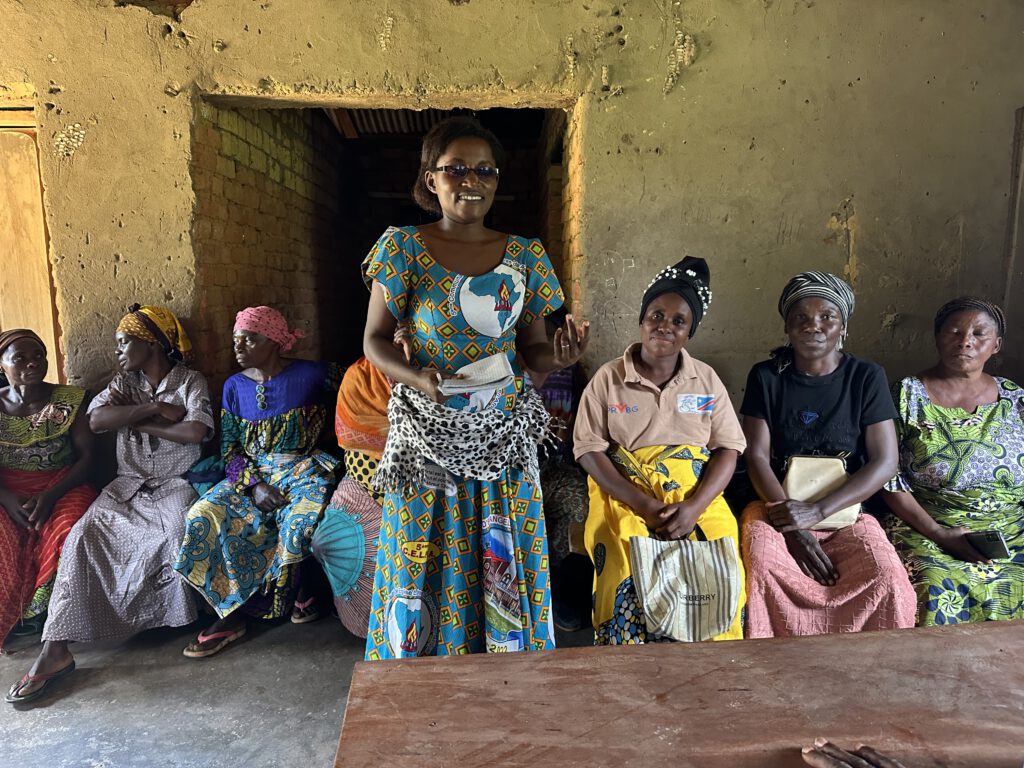
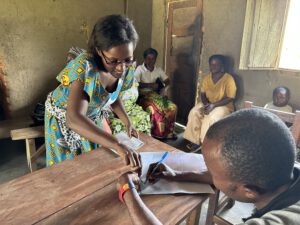 No other meeting was anywhere near as well prepared and structured as today’s! The project manager Esther did an excellent job of preparing and organising everything! Really great! 👍🏿👍🏼 She reported a lot on the successes of the project work, but also clearly identified the problems and associated concerns of the women in the project. Hansen wrote everything down so that we can continue to support them effectively. The aim will be to effectively bundle the individual measures for the various projects, as many problems do not only affect this group but are also reported from other projects, such as the infections of the goats.
No other meeting was anywhere near as well prepared and structured as today’s! The project manager Esther did an excellent job of preparing and organising everything! Really great! 👍🏿👍🏼 She reported a lot on the successes of the project work, but also clearly identified the problems and associated concerns of the women in the project. Hansen wrote everything down so that we can continue to support them effectively. The aim will be to effectively bundle the individual measures for the various projects, as many problems do not only affect this group but are also reported from other projects, such as the infections of the goats.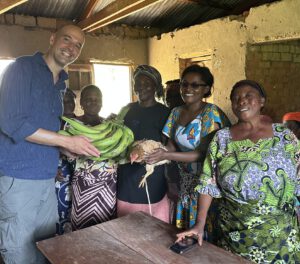 Esther says that the big international organisations all drive past to the big cities and concentrate their projects there. We were the first to stop, listen and provide pragmatic support.
Esther says that the big international organisations all drive past to the big cities and concentrate their projects there. We were the first to stop, listen and provide pragmatic support.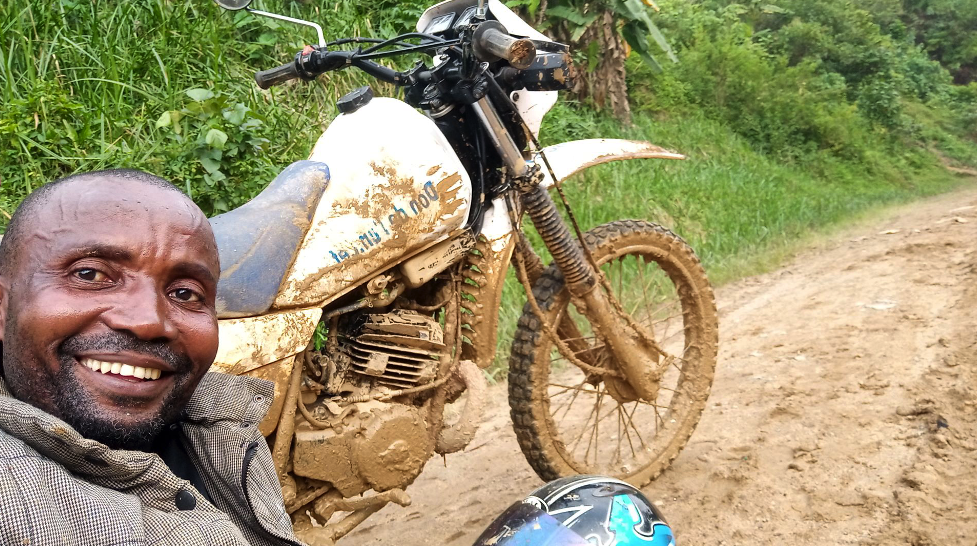
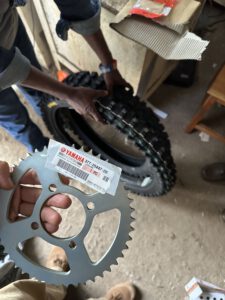 Not only does this cause problems for the drivers, the vehicles‘ technology also suffers. The mixture of sand and water settles on the drive chain, for example, and abrades the teeth of the drive sprockets little by little with every revolution – like sandpaper. The wear is correspondingly high.
Not only does this cause problems for the drivers, the vehicles‘ technology also suffers. The mixture of sand and water settles on the drive chain, for example, and abrades the teeth of the drive sprockets little by little with every revolution – like sandpaper. The wear is correspondingly high.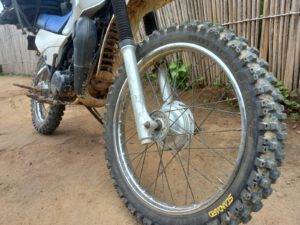
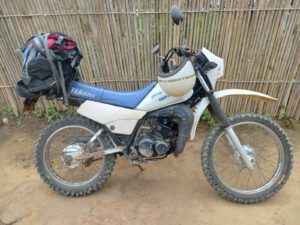
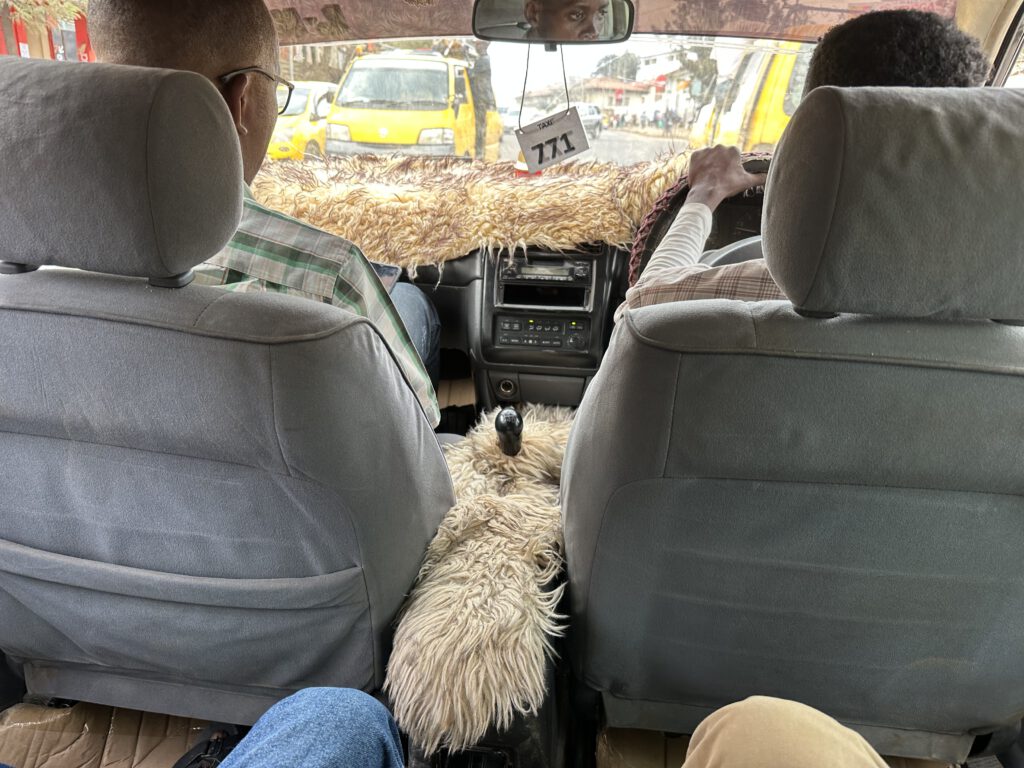
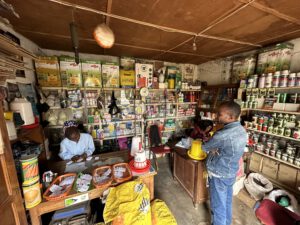 After we had been to the bank (see separate report), we went on a ‘shopping tour’: we ordered the medication and instruments for treating the goats from a veterinary pharmacy. We even travelled there in a suitable taxi 😄. They also have seeds for our agricultural project 👌🏼 A valuable address that Carlos, a Swiss man who has lived and worked here for 40 years, gave us. He really knows everything here!
After we had been to the bank (see separate report), we went on a ‘shopping tour’: we ordered the medication and instruments for treating the goats from a veterinary pharmacy. We even travelled there in a suitable taxi 😄. They also have seeds for our agricultural project 👌🏼 A valuable address that Carlos, a Swiss man who has lived and worked here for 40 years, gave us. He really knows everything here!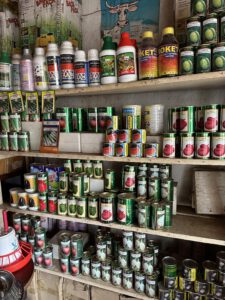
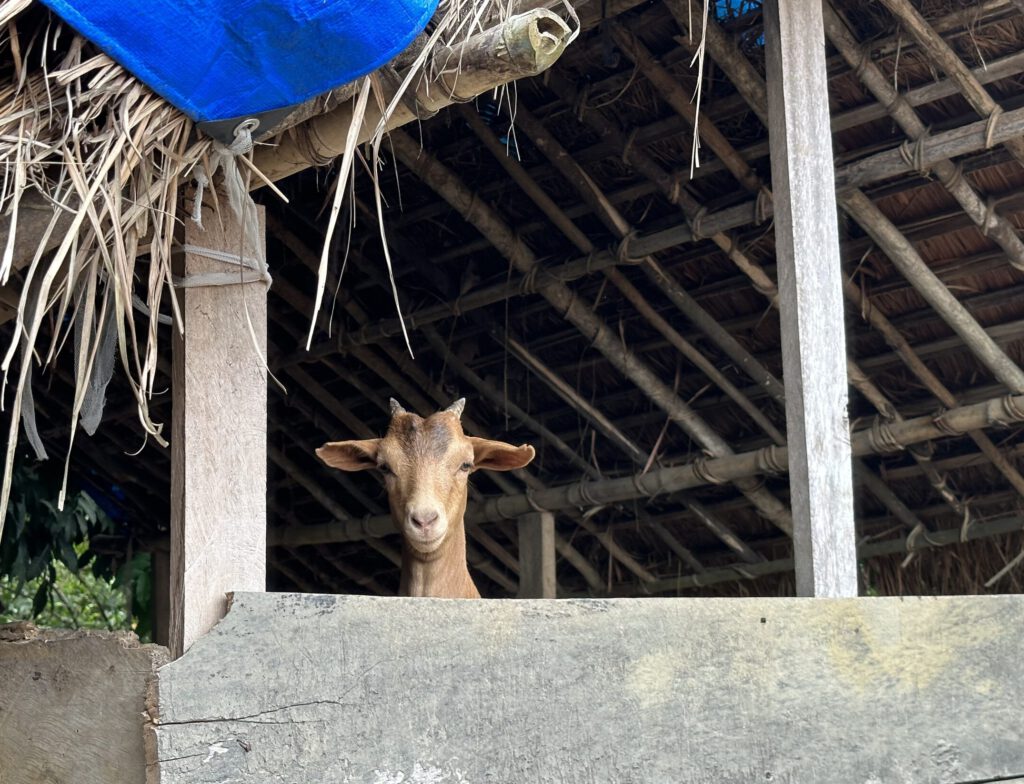
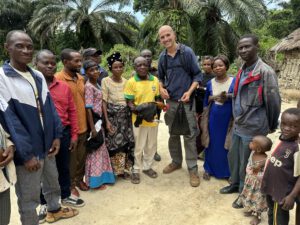 Another one of our first projects that is still going strong today! For over 12 years! Again we were richly rewarded during our visit! Here, too, people have joined forces and formed a co-operative – experience shows that this is when the projects work best! If a committed and thoughtful person takes the chair, it can only succeed! Another example of this is the project with Esther and the women! (see article below)
Another one of our first projects that is still going strong today! For over 12 years! Again we were richly rewarded during our visit! Here, too, people have joined forces and formed a co-operative – experience shows that this is when the projects work best! If a committed and thoughtful person takes the chair, it can only succeed! Another example of this is the project with Esther and the women! (see article below)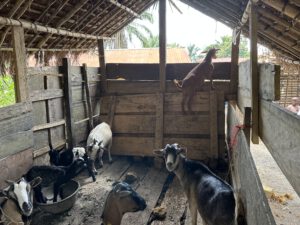 some even have two! And many of the goats that we have passed on to the other projects come from here. Not a single one has the infection that many projects have to contend with. That’s no coincidence!
some even have two! And many of the goats that we have passed on to the other projects come from here. Not a single one has the infection that many projects have to contend with. That’s no coincidence! 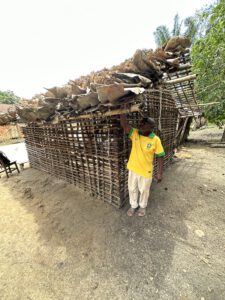 From the way Remi puts together the materials he uses to build the house, you can see how much vigour he puts into things. The shared barn is in excellent condition – even with climbing facilities for the goats!
From the way Remi puts together the materials he uses to build the house, you can see how much vigour he puts into things. The shared barn is in excellent condition – even with climbing facilities for the goats!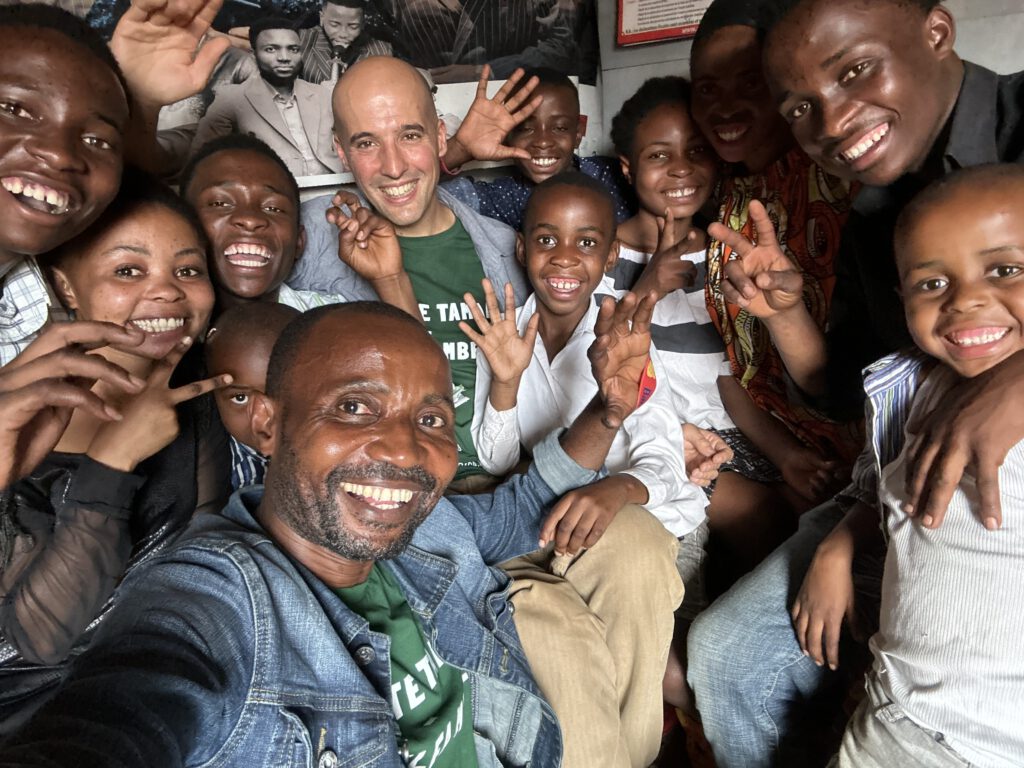
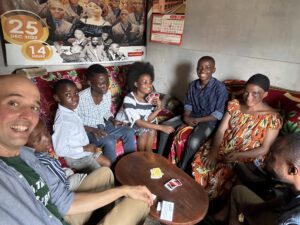
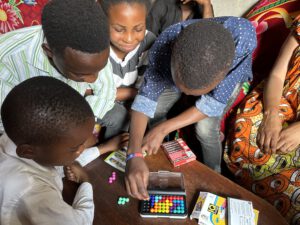
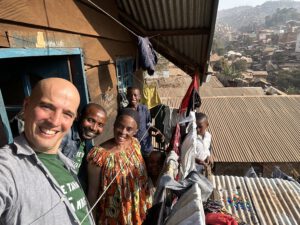
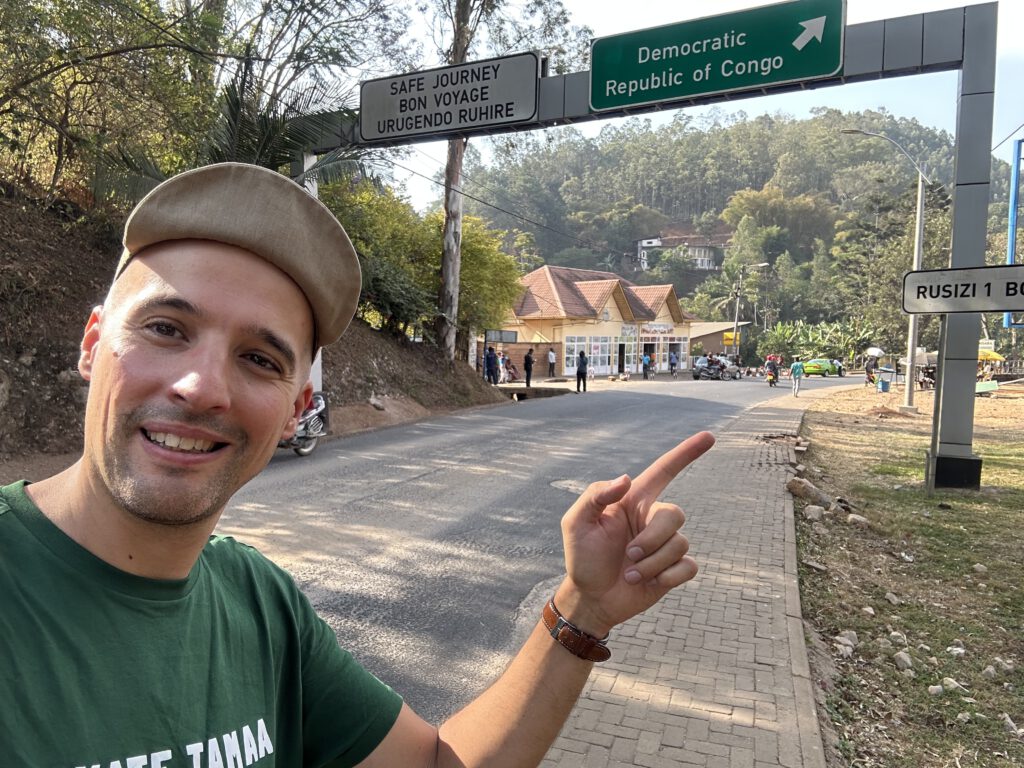
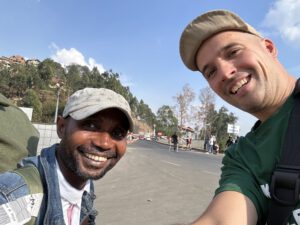 But in August 2023, the time had finally come: after more than 12 years, I was able to travel to South Kivu again and visit my colleagues and our project on site! It was a wonderful moment when Hansen and I met again! He is still the same and is as passionate about our work as he was on the first day! We travelled every day for three weeks and saw and experienced a lot. The following articles give an insight into our work, into wonderful people, into a beautiful country and into our dream of a world in which the
But in August 2023, the time had finally come: after more than 12 years, I was able to travel to South Kivu again and visit my colleagues and our project on site! It was a wonderful moment when Hansen and I met again! He is still the same and is as passionate about our work as he was on the first day! We travelled every day for three weeks and saw and experienced a lot. The following articles give an insight into our work, into wonderful people, into a beautiful country and into our dream of a world in which the 